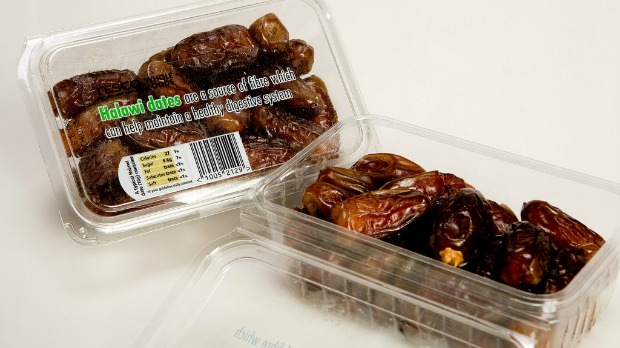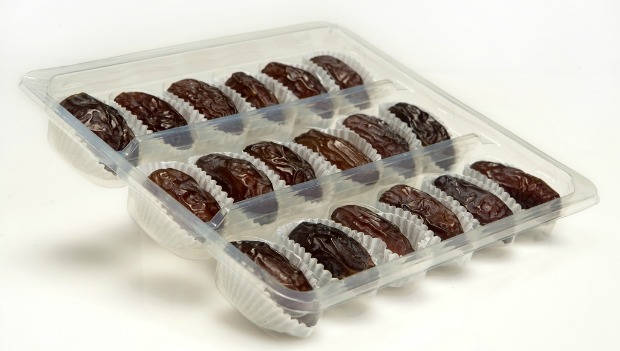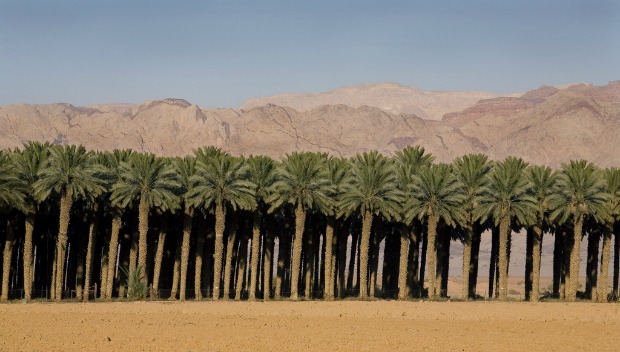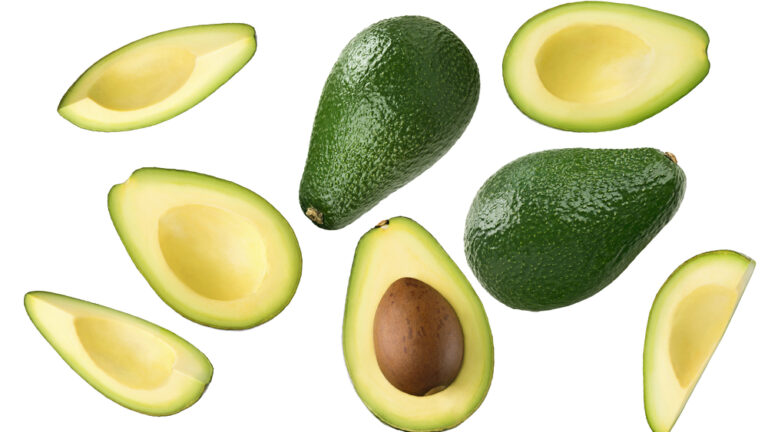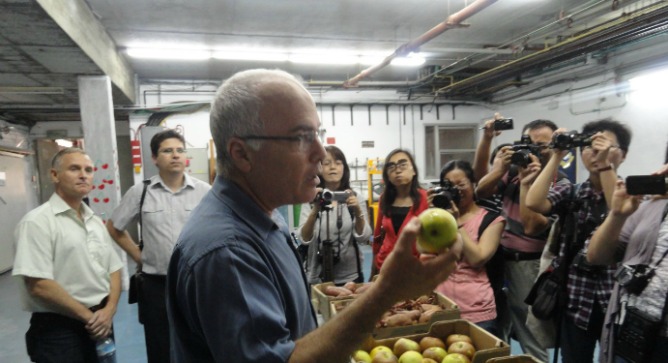Boxed like fine chocolates, premium Israeli dates are just as sweet and pack a guilt-free nutritional punch – and they’re not only for snacking anymore.
ISRAEL21c spoke with Chezi Almog, VP-marketing for Hadiklaim Israeli Date Growers Cooperative, whose nine varieties of King Solomon and Jordan River brand dates are sold in 25 countries on five continents through major retailers including Marks & Spencer (UK) and Kroger’s (US).
Spread the Word
• Email this article to friends or colleagues
• Share this article on Facebook or Twitter
• Write about and link to this article on your blog
• Local relevancy? Send this article to your local press
Almog says the most coveted variety is the soft, juicy, jumbo-sized Medjoul. Those grown in Israel’s Jordan Valley account for about 35 percent of the global Medjoul market, and a chunk of Hadiklaim’s total $65 million in date exports annually.
Consumers are learning that dates are a healthy addition to the diet, and that has led to a growth in exports.
Israeli scientist Michael Aviram discovered in 2009 that dates protect against heart attack and stroke by lowering blood triglyceride levels. Dates also stabilize blood pressure and contain antioxidants, vitamins A and B, protein and dietary fiber. About 60% of a dried date is natural sugar (as opposed to 30% in a fresh date), so it gives a fast energy boost, too.
And they’re truly “all natural” because, unlike other dried fruit, dates do not need to be preserved with potassium sorbate or sulfur dioxide. “The sugar preserves them,” says Almog. “Our dates are washed with plain water, and that’s it.”
In addition, thanks to an innovation from scientists at the government’s Volcani Agricultural Research Organization, exported dates are heat treated rather than fumigated to kill insects. “We spend a lot to bring you the dates in the same condition they were in at harvest,” says Almog.
Repositioning the date
Muslims consume the most dates worldwide – especially during the month of Ramadan, when the daily fast is broken on dates and water. Whereas the average Israeli eats about one kilogram of dates per year, residents of Arab countries consume 10 times that amount.
Aside from the Muslim market, however, until recently dried dates were considered only a snack item or an ingredient for Christmas fruitcakes. Marketers have been repositioning dates as an all-year, versatile food by publicizing their health benefits, getting them to market fresher, and putting them into attractive packaging to display alongside fancy fruit such as strawberries and cherries.
Almog says people want their dates softer and sweeter, which growers accommodate by harvesting earlier than in years past.
Early harvesting shortens the shelf life, but sophisticated methods for packing, shipping and storage take care of that problem. Frozen fresh dates are in less demand (except in Spain, for some reason) since they aren’t as sweet.
Israeli dates are packed at 15 Hadiklaim stations situated near member plantations, which include one in Jericho whose boxes read “Produce from Palestine” destined for customers in Dubai and parts of Europe.
Medjoul is king
“The Medjoul was born in Morocco,” Almog relates. “The sad story is that the [date] palms in Morocco were killed by disease 40 or 50 years ago.”
Some saplings were salvaged and sent to California, and the Jewish Agency brought a few from there to Israel’s Arava Valley in the 1970s. “Normal dates are between six to 11 grams, while the Medjoul is typically 20 to 30 grams,” he explains. Its pit is no larger than other dates, so you get a fleshier fruit on the inside with an appealing appearance on the outside.
Though dates are one of the seven species of fruit and grain mentioned in the Bible as native to the Land of Israel, Almog explains that ancient palms did not survive into modern times.
In the 1930s, Kibbutz Kinneret founder Ben-Zion Yisraeli took daring trips to Egypt, Iraq, Kurdistan and Persia in search of date-palm saplings to transplant in the Holy Land. The Medjoul and Deglet Nour varieties arrived decades later via California.
All date varieties in Israel are grown in the Jordan Valley and Arava areas because the Syrian-African Rift, reaching from the Sea of Galilee in the north to the Dead Sea in the south, offers the perfect hot growing conditions for dates.
“High temperatures are needed for the fruit to mature, and palms also need a lot of water, which we don’t always have in this area,” says Almog. Luckily, the trees thrive on slightly salty (brackish) or recycled water.
This year, the overall date harvest in Israel is expected to add up to 20,000 tons and $80 million of market value, led by the Medjoul and followed by Barhi, Deglet Nour and Hayany. By way of comparison, in 1982 Israel exported about 1,500 tons of dates worth $4 million. Clearly the market is expanding.
“Our growth in America is huge,” adds Almog. “This year we’ll be exporting 800 tons, while five years ago it was only 60 to 70 tons.”
Americans are discovering that dates jazz up a wide assortment of dishes. Here is a recipe from Hadiklaim that pairs rice, dates, pomegranate and pineapple.
Rice and date salad
For the salad:
2 cups cooked white rice
6-8 dates, pitted and chopped
2 big apples, peeled and chopped finely
3 pineapple rings, cut in cubes
3 tablespoons pomegranate seeds
3 tablespoons toasted pine nuts
For the dressing:
1/3 cup fresh orange juice
2 tablespoons lemon juice
2 tablespoons sunflower oil
2 tablespoons chopped mint
Salt to taste
Directions:
1. Mix all the salad ingredients in a large bowl.
2. Mix the dressing ingredients well.
3. Pour the dressing over the salad and toss lightly. Chill and serve.






